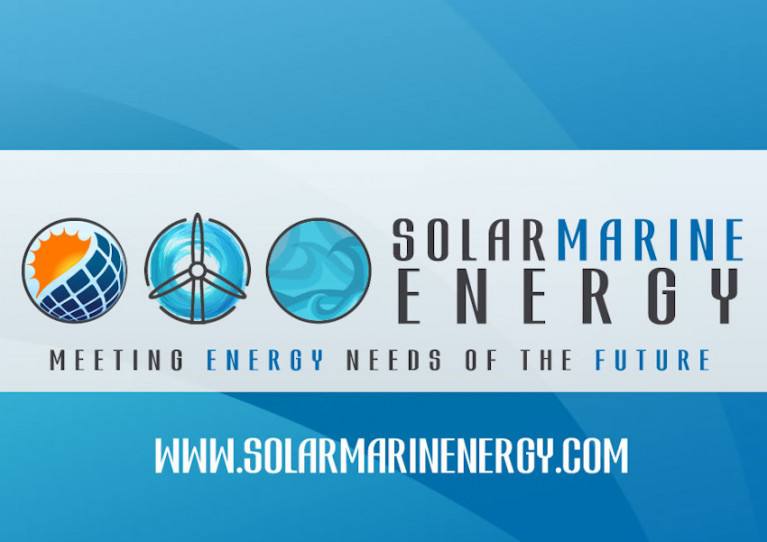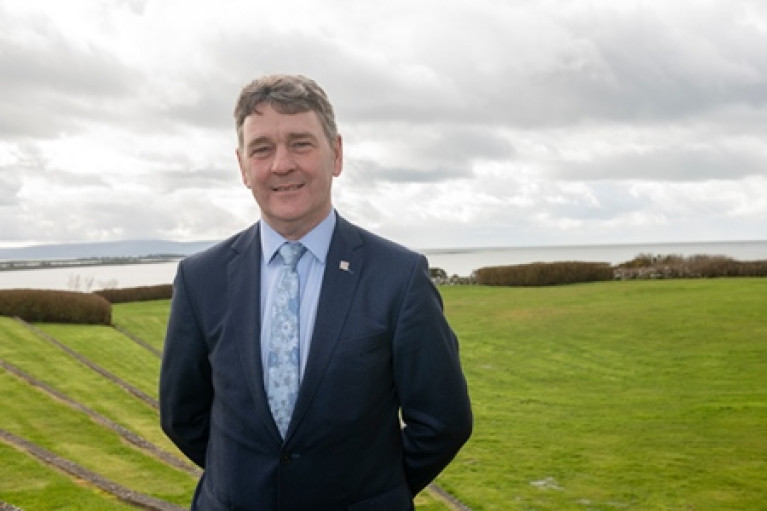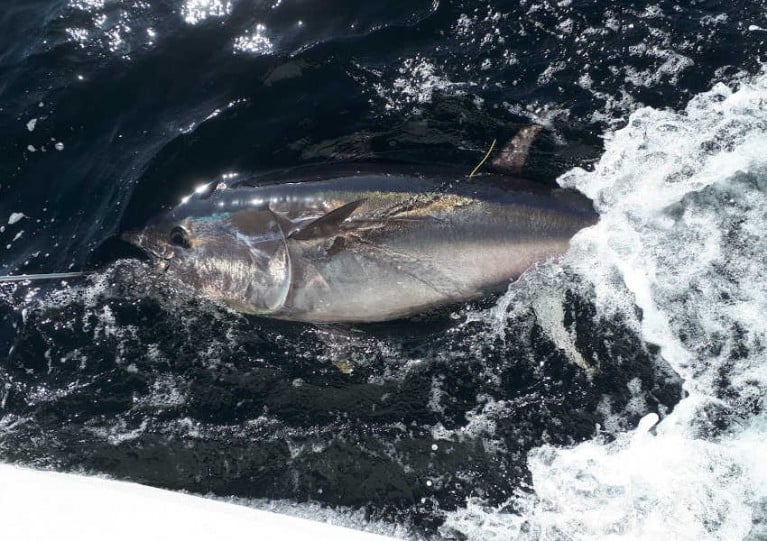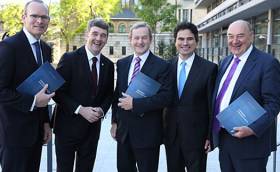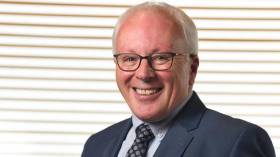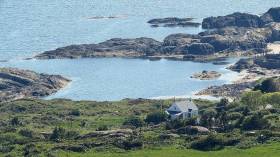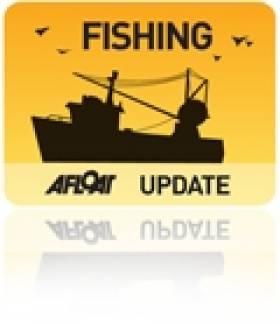Displaying items by tag: Marine Insitute
The Marine Institute’s Explorers Education programme has launched the Explorers We Are Ocean Champions School Project module and Awards this week, recognising the UN’s international education day - Changing Course, Transforming Education.
The Explorers new school project module adopts an all-school approach where the Explorers outreach teams around Ireland will work with teachers and children, developing their own healthy ocean project to inspire and engage their school and community to become ocean champions.
“The Explorers Ocean Champions project and awards highlights the Marine Institute’s aim to help encourage marine education and engagement at a community level,” said Ms Patricia Orme, Director, Marine Institute. “Schools working in collaboration with the Explorers outreach teams and their local communities, will gain a better understanding of our ocean and is a fantastic opportunity to inspire our younger generation, creating ocean champions and leaders of the future.”
The project and awards focus on the concept of healthy oceans and marine environmental care, with the aim that children will identify issues or challenges that affect the ocean and then develop a project to explore solutions. Throughout the project the children will work together with the Explorers outreach teams, their school, friends, family, and local community, helping to raise awareness and engagement about the ocean. This may include organising community beach cleans, development of science projects and artwork, to organising school drama, songs or public speaking competitions about the ocean.
Primary schools may apply to work on a school project with their regional Explorers Outreach centres.
“Adopting an all-school approach to complete this project is an excellent opportunity for children to develop their own skills and their relationships with their community and the environment. A significant part of the project is taking what they have learned and using it to creative positive actions to improve the ocean’s health,” explained Cushla Dromgool-Regan, Strategic Education and Communications Manager, Explorers Education Programme, Camden Education Trust.
“We hope that the scope of this project will appeal to primary schools, where the cross-curricular nature of the activities and support from the outreach teams will allow the children, their teachers, and their community to engage with the ocean in a creative manner and focus on an issue that interests them,” Ms Dromgool-Regan added.
There are three categories, where the school project must adopt a Healthy Ocean theme include: Marine Cross Curricular and STEAM school project; Ocean Literacy and Sustainable Development Goals creative school project; and Marine Outdoor school project. More information about the school project and awards can be found on the Explorers website.
Each school and outreach centre will submit their projects, showing the impact and engagement of the children’s work. Project submissions will be judged by a team of marine and education experts, where the winners will receive a Marine Institute Ocean Champion award for their school. Winners of the awards will be announced around World Ocean Day on the 8th June.
For more information about the Explorers Education Programme see www.explorers.ie. The Explorers Education Programme is funded by the Marine Institute, Ireland's state agency for marine research and development.
Irish Firm’s Floating Green Energy Solution One Step Closer to Fruition
Ireland’s first floating solar energy plant is another step closer to fruition thanks to funding from the Marine Institute.
Co Mayo-based SolarMarine Energy Ltd shared in the €2.4 million Industry-Led Awards scheme for research projects in 2018, putting its grant into the design of a floating solar energy structure to generate ‘green hydrogen’.
As previously reported on Afloat.ie, the company secured permission from the Port of Cork some 18 months ago to install a 1.5MW plant in Cork Harbour at Ringaskiddy.
However, there is currently no official recognition of the company’s innovative concept within marine planning legislation.
This remains “an obstacle to obtaining a foreshore license for the development of floating solar projects”, as the final report into the project states.
Eamon Howlin, CEO of SolarMarine Energy, says: “The floating solar industry is only emerging in Europe having been established in Japan in 2014, and has a projected market value of over $1 billion by 2023.
“Thanks to our collaborative study in partnership with the Marine Institute and University College Cork, SolarMarine Energy Ltd are playing an important part in this developing industry.”
Dr Paul Leahy of the Science Foundation Ireland MAREI Centre at University College Cork (UCC) added that permission for a prototype at Ringaskiddy “would allow SolarMarine and UCC to capitalise on the design work undertaken under the Marine Institute-funded project, and bring the SolarMarine floating solar concept closer to market”.
Former Marine Institute CEO Appointed Chair to Leading Research Council
The former chief executive of the Marine Institute has been appointed as the new chair of the council of the Dublin Institute for Advanced Studies (DIAS).
Dr Peter Heffernan served as the Marine Institute’s CEO for 27 years, retiring from the post in October 2019, and his new role is with the world’s second — and Ireland’s only — institute for advanced studies.
DIAS leads Ireland’s participation in a number of international research endeavours that focus on the big, unanswered questions for mankind.
Dr Heffernan previously played a fundamental part in developing Ireland’s ocean research capacity, which included overseeing the arrival of Ireland’s two purpose-built marine research vessels: the RV Celtic Voyager in 1997 and the RV Celtic Explorer in 2003.
He also instigated the development of the Inter-Department Marine Coordination Group in 2009, which led to Ireland’s first integrated marine plan, Harnessing Our Ocean Wealth.
Dr Heffernan acted as an inspiration and Irish EU Presidency Ambassador for the creation of the Atlantic Ocean Research Alliance (AORA) with the signing of the Galway Statement on Atlantic Ocean Co-operation between Canada, the European Union and the United States of America.
And he is Ireland’s only representative on the European Union’s Mission Board for Healthy Oceans, Seas, Coastal and Inland Waters.
Building on the success of last year’s Tuna CHART (CatcH And Release Tagging) pilot programme, a bluefin tuna research catch-and-release fishery for Ireland will operate in 2020.
A maximum of 25 authorisations may be granted to qualifying angling charter vessel skippers around the Irish coast for this fishery which will open on Wednesday 1 July and close on Thursday 12 November, without exception.
And depending on the successful operation and review of this year’s fishery, it is intended that a scientific catch and release fishery may also operate in 2021 and 2022.
Atlantic bluefin tuna, the largest tuna in the world, frequent Irish coastal waters to feed during its annual migration through North Atlantic waters. The bluefin tuna is prized by sea anglers for its power and fighting ability and is a very valuable commercial species.
The Tuna CHART programme is a collaborative scientific programme between Inland Fisheries Ireland (IFI) and the Marine Institute in partnership with the Sea Fisheries Protection Authority, the Department of Agriculture, Food and the Marine (DAFM) and the Department of Communications, Climate Action and Environment (DCCAE).
In 2019, the Tuna CHART pilot programme authorised 15 charter skippers to operate a scientific fishery, in which anglers participated fully, to catch, tag and release bluefin tuna.
These professional skippers were trained to tag, measure and record bluefin data and over the course of the 2019 three month season, 219 bluefin tuna were caught, tagged and released. As many as eight bluefin were tagged on one fishing trip.
All tuna were carefully handled subject to strict guidelines set by the Tuna CHART programme and all were released alive. Data from the tagging programme are being collated by the partnership for reporting to the International Commission for the Conservation of Atlantic Tuna (ICCAT).
As with the pilot programme, this year’s authorised skippers will be required to have high specification rods, reels and line in advance of the open season in order to bring the fish alongside in a timely manner. Skippers will be required to collect data on every bluefin trip undertaken and each bluefin tuna they catch, tag and release.
A call for applications for the 2020 fishing season will be announced next Tuesday 18 February and the last date for the receipt of a completed application will be 1pm on Friday 6 March.
Tanaiste Pays Tribute to Outgoing Marine Institute Chief Executive
Tánaiste Simon Coveney has paid tribute to outgoing Marine Institute chief executive Dr Peter Heffernan for the “phenomenal impact” he has had on Irish and international scientific research writes Lorna Siggins.
Dr Heffernan has been a “trailblazer, demanding political attention”, ensuring Ireland’s reputation as a global leader in the “international marine space”, Mr Coveney said.
Dr Heffernan, who is retiring after almost 27 years in the post, says that Ireland can play a key role in international monitoring of ocean health and impacts of climate change.
Speaking by video at an event in the Marine Institute’s headquarters in Galway on Wednesday, Mr Coveney said that he shared Dr Heffernan’s “passion for the sea and all things marine”.
“As minister for marine, planning and now foreign affairs, I can say that without Peter we wouldn’t have a Marine Institute,” Mr Coveney said.
He recalled how his father, the late Hugh Coveney, had spoken about Peter Heffernan during his own time as marine minister, and how he had also then experienced the scientist’s “extraordinary energy, drive and ambition”.
"Without Peter, we wouldn’t have a Marine Institute”
US National Oceanic and Atmospheric Administration’s acting chief scientist Craig McLean and Minister for Marine Michael Creed also paid tribute to Dr Heffernan, while European Commission senior official John Bell highlighted his role in creating the Atlantic Ocean Research Alliance.
Initiated in 2013, the alliance commits North America, Canada and the EU to a shared vision of the Atlantic as “healthy, resilient, safe, productive, understood and treasured”.
Under Dr Heffernan’s tenure, the Marine Institute established a headquarters in Galway and developed a marine research fleet – with plans to purchase a new 50m ship to replace the 31m Celtic Voyager.
Dr Heffernan said the changing climate’s impact on the oceans is now the “greatest global challenge”, which Ireland is well placed to monitor – with significant investment in monitoring technology, including the weather buoy network and gliders,
Dr Paul Connolly, who succeeds Dr Peter Heffernan, is a former president of the International Council for the Exploration of the Seas (ICES).
Up until recently, he was the director of the Marine Institute’s Fisheries and Ecosystems Advisory Services (FEAS) team, providing scientific advice on the sustainable exploitation of Ireland’s fisheries resource and marine ecosystems.
Marine Institute chairman Dr John Killeen said that Dr Connolly “brings a wealth of experience and knowledge to the role, and will be dedicated to positioning the institute as a global leader in ocean knowledge, and empowering Ireland to harness our marine resource”.
Dr Killeen said that Dr Heffernan had “played a fundamental role in developing Ireland’s ocean research capacity”, and “driving collaboration in marine research and innovation in Europe and internationally”.
Dr Heffernan has been selected as a member of the European Commission’s mission board for Healthy Oceans, Seas, Coastal and Inland Waters.
The board is one of five major research missions of Horizon Europe, the EU Research and Innovation programme (2021 – 2027), and Dr Heffernan is one of two Irish appointees.
Paul Connolly is New CEO of the Marine Institute
Dr Paul Connolly has been announced as the Chief Executive Officer of the Marine Institute, Ireland’s state agency for marine research, technology development and innovation. The appointment follows the upcoming retirement of Dr Peter Heffernan after 27 years as CEO of the institute.
Dr Connolly is the current Director of Fisheries and Ecosystems Advisory Services (FEAS) at the Marine Institute, leading a team of more than 80 scientists and staff to provide scientific advice on the sustainable exploitation of Ireland’s fisheries resource and marine ecosystems.
On the announcement Minister Creed said, “Our marine resource offers significant opportunities for Ireland in areas of research and innovation, the sustainable development of our blue economy, and ocean observation to prepare for the impacts of climate change. With Dr Connolly’s extensive experience in sustainable fisheries management, leading innovative and integrated research programmes and driving strategic collaborations nationally and internationally, the Marine Institute will continue to deliver excellent science, advice and technical support to government and industry.”
Dr Connolly said, “Over the next five years, I will be deeply committed to supporting a culture of high performance driven by our people, whose skills, experiences and passion for the marine are central to the work of the Marine Institute. These are very exciting times for ocean science, with the UN Decade of the Ocean beginning in 2021, the anticipated delivery of a new research vessel in 2022 and the need to address the challenges posed by a changing climate.”
Dr Connolly is a former president of the International Council for the Exploration of the Seas (ICES); a network of 20 countries, which aims to advance scientific understanding of marine ecosystems and provides impartial scientific advice for meeting conservation, management, and sustainability goals.
He has chaired the quarterly meetings of the Irish Fisheries Science Research Partnership (IFSRP) since it was established by the Minister in 2008. Dr Connolly led the development of the ICES Strategic Plan (2014-2018) which was adopted by 20 member countries, and worked closely with government, agencies and the Marine Institute team to develop Ireland’s integrated marine plan, Harnessing Our Ocean Wealth. He also led the executive in developing the Marine Institute’s Strategic Plan, Building Ocean Knowledge Delivering Ocean Services (2018 - 2022).
Dr Connolly has a PhD from UCD (1986), an MBA from NUI Galway (2006) and completed the Timoney Advanced Leadership programme in 2016.
Seven Successful Projects Set For Access To SmartBay Test Site Under Funding Programme
Seven successful applicants will be awarded funding under the Marine Institute’s SmartBay National Infrastructure Access Programme (NIAP) following the 2018/2019 funding call.
The awardees will receive support of around €25,000 per project to trial and validate their technology and/or gain access to data feeds to carry out scientific research at the SmartBay Marine and Renewable Energy Test Site in Galway Bay.
The call was open to both academia and industry, and other relevant organisations, on the island of Ireland to access the SmartBay test site and subsea observatory.
The chosen organisations may deploy equipment on the test site, connect to and access the underwater observatory, and analyse the many data feeds which are collected on site every day.
Over the past seven years, more than 50 projects have been awarded funding, facilitating a wide range of multi-disciplinary marine research, development and innovation at this national facility, the Marine Institute says.
Welcoming the announcement, the institute’s outgoing chief executive Dr Peter Heffernan said the funding awards “are aligned with the goals of the national Marine Research and Innovation Strategy 2017–2021”.
This year the following projects were awarded funding:
- Dublin City University — Demystifying the ocean through underwater video analysis: marine life activity detection, classification and indexing for the SmartBay ocean observation platform
- Sligo Institute of Technology — A small waterplane area twin hulled (SWATH) tide buoy with real-time kinematic (RTK) positioning for accurate (centimetre level) tide gauge calibration
- Queen’s University Belfast — Can introduced marine infrastructure enhance the conservation of vulnerable species?
- Dundalk Institute of Technology — Wave parameter estimation from oscillating water column pressure signal - Phase 2 electronic optimisation of the WASP
- Galway Mayo Institute of Technology — Environmental DNA/RNA metabarcoding for monitoring marine biodiversity in Galway Bay, with particular attention to marine invasive alien species
- Danalto Ltd — LoRaC2.4: a geolocation technology for the marine environment
- NUI Galway — Wave resource characterisation at the Galway Bay Marine and Renewable Energy Test Site
The first projects are preparing for deployment and testing over the coming month.
SmartBay is Ireland’s national marine test and demonstration facility for the development of innovative products and services for the global maritime sector. The National Infrastructure Access Programme is funded by the Marine Institute under the Marine Research Programme with the support of the Irish Government.
Research Shows Visitors Spent Nearly €2bn In Ireland’s Coastal Areas In 2018
Overseas visitors holidaying in Ireland’s coastal areas spent €1.94 billion in 2018, while marine tourism generated €650 million in the same period.
That’s according to new research from NUI Galway’s Socio-Economic Marine Research Unit (SEMRU), which also identified activities such as coastal sightseeing, beach and island visits and walking, running and cycling along the coast as most popular among overseas visitors.
SEMRU’s Survey of Marine and Coastal Overseas Tourism Activity in Ireland was funded by the Marine Institute through the National Marine Research Programme as part of a larger project aimed at valuing and understanding the dynamics of Ireland’s ocean economy.
The survey found that while tourism and leisure comprise a key contribution to Ireland’s ocean and coastal economies, there is a gap nationally and internationally in trying to assess its value specific to marine and coastal areas.
SEMRU’s survey suggests that more than three-quarters (76%) of Ireland’s 7.9 million overseas visitors in 2018 are estimated to have visited a coastal area, while 61% are thought to have participated in a marine-related leisure activity.
The average total expenditure per travelling party in the survey sample was €1,630, with the average trip lasting seven days. Of this, an estimated €699 was spent in coastal areas.
The results also indicated that overseas visitors participate in coastal and marine tourism activities largely on the West Coast of Ireland, with Co Kerry leading over Co Galway and Co Clare.
Dr Niall McDonough of the Marine Institute said: “This report by SEMRU provides useful information to stakeholders and policy makers on the value and growth potential of this activity, which is so reliant on our rich coastal and marine resource.
“An analysis of research maturity, completed as part of developing the National Marine Research and Innovation Strategy, showed a gap in research capability in the area of tourism and leisure.
“These findings by SEMRU increase our knowledge in this area. As research in higher education institutions in Ireland is limited, however, the Marine Institute has also included a potential fellowship in its recent Post-Doctoral Fellowship Call.”
Applications under this call are being accepted until next Wednesday 18 September for proposals of three to five years in duration.
EU Fisheries Commissioner Visits Ireland to Discuss Policy
EU Commissioner for Maritime Affairs and Fisheries, Maria Damanaki will visit Ireland this week to discuss reform of the Common Fisheries Policy.
Commissioner Damanaki will speak tomorrow at the Institute of International and European Affairs where she will address Irish stakeholders on the new policy, which aims at preserving fish stocks at sustainable levels by managing fisheries in a responsible, science-based way.
She will also later meet with Minister for Agriculture, Fisheries and Food Simon Coveney.
On Friday she will travel to Galway with EU Commissioner for Research, Innovation and Science, Máire Geoghegan-Quinn, to visit the Marine Institute and participate in a roundtable on maritime policy with representatives of the Irish administration and the Irish maritime sector.
Commissioner Damanaki will also gauge the views of Irish stakeholders on the upcoming Atlantic Strategy under the Integrated Maritime Policy, which the European Commission is currently drawing up.
- EU Commissioner for Maritime Affairs and Fisheries
- Maria Damanaki
- Common Fisheries Policy
- Institute of International and European Affairs
- stakeholders
- sustainable fishing
- fishing
- fisheries
- Minister for Agriculture, Fisheries and Food
- Simon Coveney
- EU Commissioner for Research Innovation and Science
- Máire GeogheganQuinn
- Marine Insitute
- maritime policy
- Atlantic Strategy
- Integrated Maritime Policy
- European Commission


























